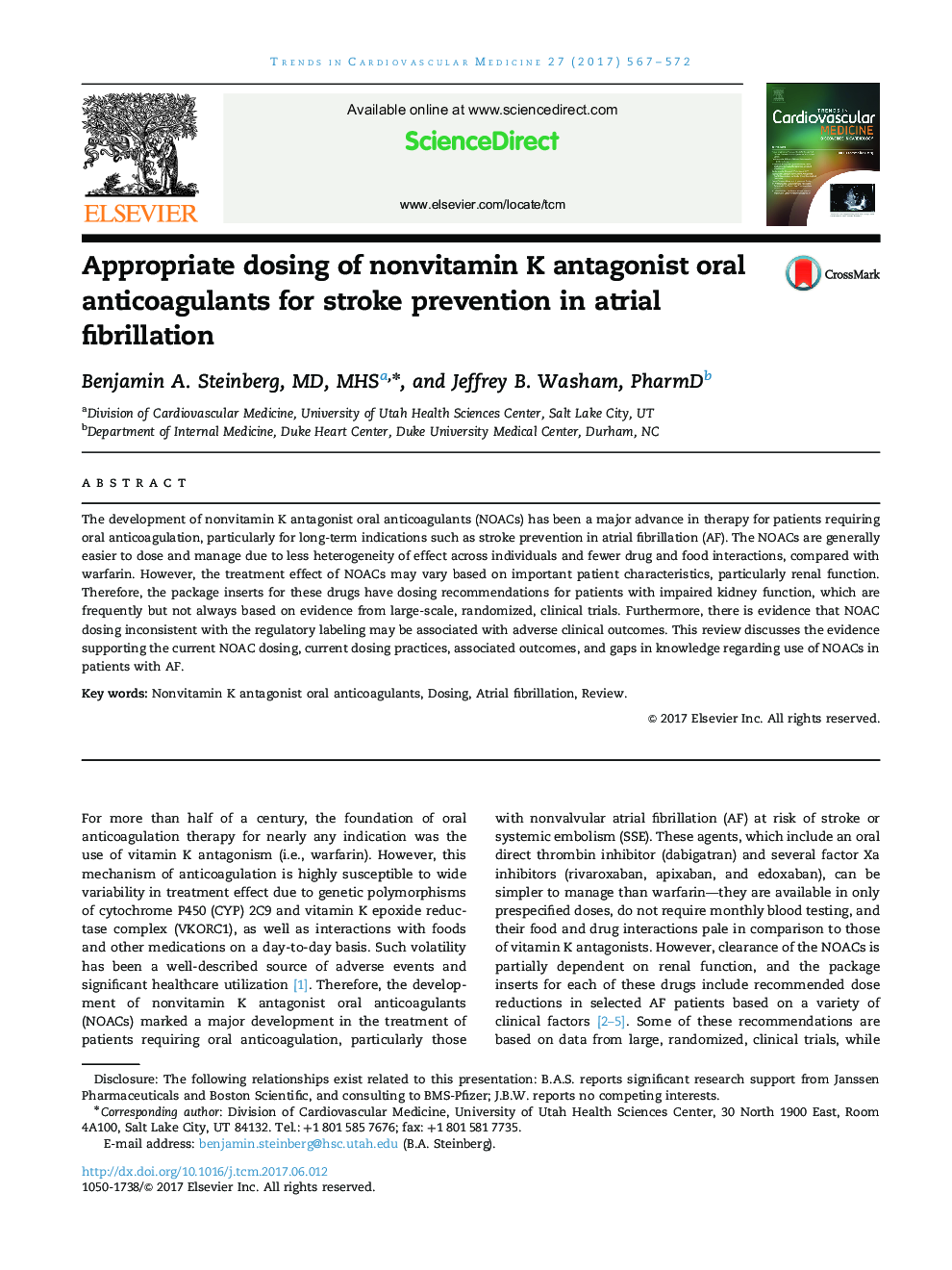| Article ID | Journal | Published Year | Pages | File Type |
|---|---|---|---|---|
| 5622232 | Trends in Cardiovascular Medicine | 2017 | 6 Pages |
The development of nonvitamin K antagonist oral anticoagulants (NOACs) has been a major advance in therapy for patients requiring oral anticoagulation, particularly for long-term indications such as stroke prevention in atrial fibrillation (AF). The NOACs are generally easier to dose and manage due to less heterogeneity of effect across individuals and fewer drug and food interactions, compared with warfarin. However, the treatment effect of NOACs may vary based on important patient characteristics, particularly renal function. Therefore, the package inserts for these drugs have dosing recommendations for patients with impaired kidney function, which are frequently but not always based on evidence from large-scale, randomized, clinical trials. Furthermore, there is evidence that NOAC dosing inconsistent with the regulatory labeling may be associated with adverse clinical outcomes. This review discusses the evidence supporting the current NOAC dosing, current dosing practices, associated outcomes, and gaps in knowledge regarding use of NOACs in patients with AF.
